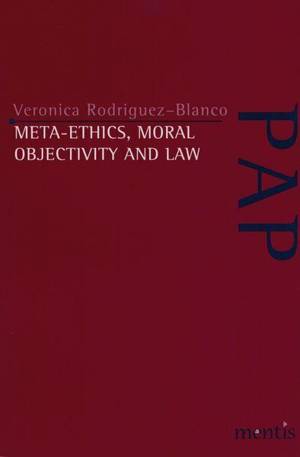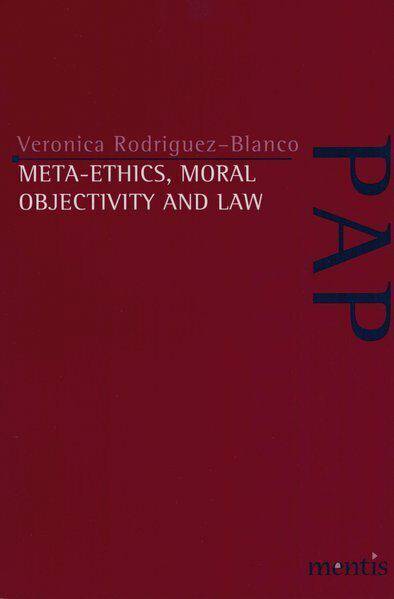
Bedankt voor het vertrouwen het afgelopen jaar! Om jou te bedanken bieden we GRATIS verzending (in België) aan op alles gedurende de hele maand januari.
- Afhalen na 1 uur in een winkel met voorraad
- In januari gratis thuislevering in België
- Ruim aanbod met 7 miljoen producten
Bedankt voor het vertrouwen het afgelopen jaar! Om jou te bedanken bieden we GRATIS verzending (in België) aan op alles gedurende de hele maand januari.
- Afhalen na 1 uur in een winkel met voorraad
- In januari gratis thuislevering in België
- Ruim aanbod met 7 miljoen producten
Zoeken
Omschrijving
The book shows the relevance of meta-ethical and metaphysical considerations to determine the nature of law and the connection between objective moral and legal judgements. The investigation analyses the legal theories of Ronald Dworkin, Jürgen Habermas and Michael Moore. The conclusion of the scrutiny is that the discussed views fail to explain the plausible links between objective moral and legal judgements. The lesson to learn from the failure of these philosophical perspectives is that we need to revise fundamental meta-ethical conceptions within law. In addition to the view that meta-ethical and metaphysical considerations play a central role in our understanding of objective moral and legal judgements, we enforce the idea that it is necessary to revise our meta-ethical and metaphysical premises in jurisprudence. Epistemic and meta-ethical abstinence in legal theory, in this way, is challenged by a number of criticisms. The outcome of our reflection is that in legal theory, as in many other disciplines, we need to take truth and objectivity seriously.
Specificaties
Betrokkenen
- Auteur(s):
- Uitgeverij:
Inhoud
- Aantal bladzijden:
- 203
- Taal:
- Engels
- Reeks:
Eigenschappen
- Productcode (EAN):
- 9783897852105
- Verschijningsdatum:
- 22/04/2004
- Uitvoering:
- Paperback
- Formaat:
- Trade paperback (VS)
- Afmetingen:
- 233
- Gewicht:
- 3619 g

Alleen bij Standaard Boekhandel
+ 183 punten op je klantenkaart van Standaard Boekhandel
Beoordelingen
We publiceren alleen reviews die voldoen aan de voorwaarden voor reviews. Bekijk onze voorwaarden voor reviews.









